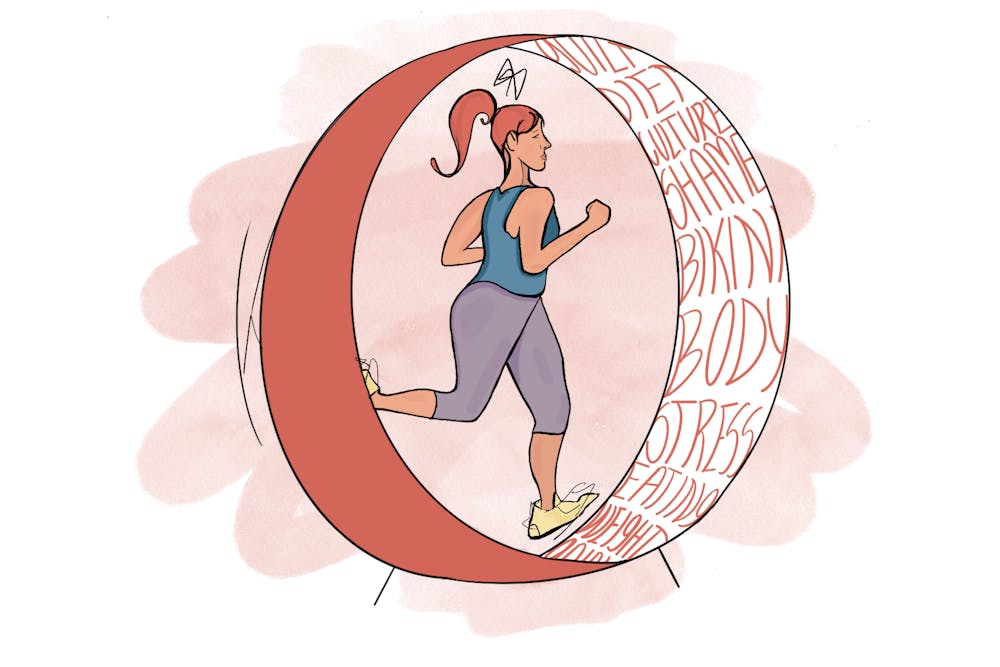The pressure to get “fit” at the start of the New Year is often rooted in a toxic mentality — rather than prioritizing health, resolutions to lose weight frequently stem from guilt and stigmatize people with larger bodies.
We’ve just marked the end of a historic — and traumatic — year. The social expectation to lose the “holiday weight” (combined with any potential weight gained over quarantine) is daunting and potentially damaging.
It might seem simple to make a resolution to lose a given amount of weight, but it is important to evaluate the motivations behind that goal. With the rise and worsening of eating disorders in the past year, focus on finding kindness in the perception of our bodies.
This November, the National Eating Disorder Association (NEDA) saw a 72% increase in online chats compared to November of the previous year.
In July, a survey in the International Journal of Eating Disorders found that 62% of people with anorexia in the U.S. had worsening symptoms during the pandemic and nearly a third of those with binge-eating disorders experienced an increase in episodes.
Our relationship with food and health does not exist in a bubble. It’s clear that the tension and anxiety from the pandemic affect the way we treat our bodies.
Though we are now but a few weeks into the new year, it is evident that the pressures from the coronavirus and national politics will continue to complicate life in 2021. Our health-related goals and resolutions need to be able to accommodate that uncertainty.
When we prioritize weight loss over health and body image over personhood, it becomes clear that our intentions might not be health-related at all. If we’re not focused on having a healthy mindset and avoiding disordered or restrictive thoughts, we are instead attempting to stick a neat little label of “fitness” onto a potentially toxic goal.
Your mentality surrounding health should not be one of guilt.
When the dialogue around weight loss becomes anti-fat instead of pro-health, our motivations become rooted in fatphobia. This mentality is damaging for a number of reasons; when the priority is the “after” picture, the means by which that aesthetic is achieved become secondary, even if that involves over-exercising and under-eating. It creates the narrative that being fat is the worst thing that can happen to us. That it’s something to be scared of.
It creates a goal that is inflexible to the realities of stress, daily life and worldwide pandemics, tying our worth to our outward appearance.
While this image-first approach to health is problematic for our own self-esteem, it also allows us to project fatphobia onto others and perpetuate the stigmatization of larger bodies, a stigma that has roots in racism and continues to cause discrimination in healthcare.
The notion of the “perfect body” is fluid and changing, forcing us into a constant state of dissatisfaction if we pursue it. Quite frankly, the perfect body is different for everyone. Body composition is but a singular facet of fitness. There is so much more to your identity and your health than your physical appearance.
So reject it. Let yourself off the toxic cycle of diets that don’t work, exercises you hate and an image-based mentality that tells you to hate the body that keeps you alive. Remove the judgements that discriminate against bodies of all sizes, especially after a year of coping with pandemic-related trauma.
This year, if you make a resolution relating to health, deprioritize the scale and focus instead on moving, eating and thinking in a way that nourishes your body. Give yourself the grace you need to actually find wellness.

